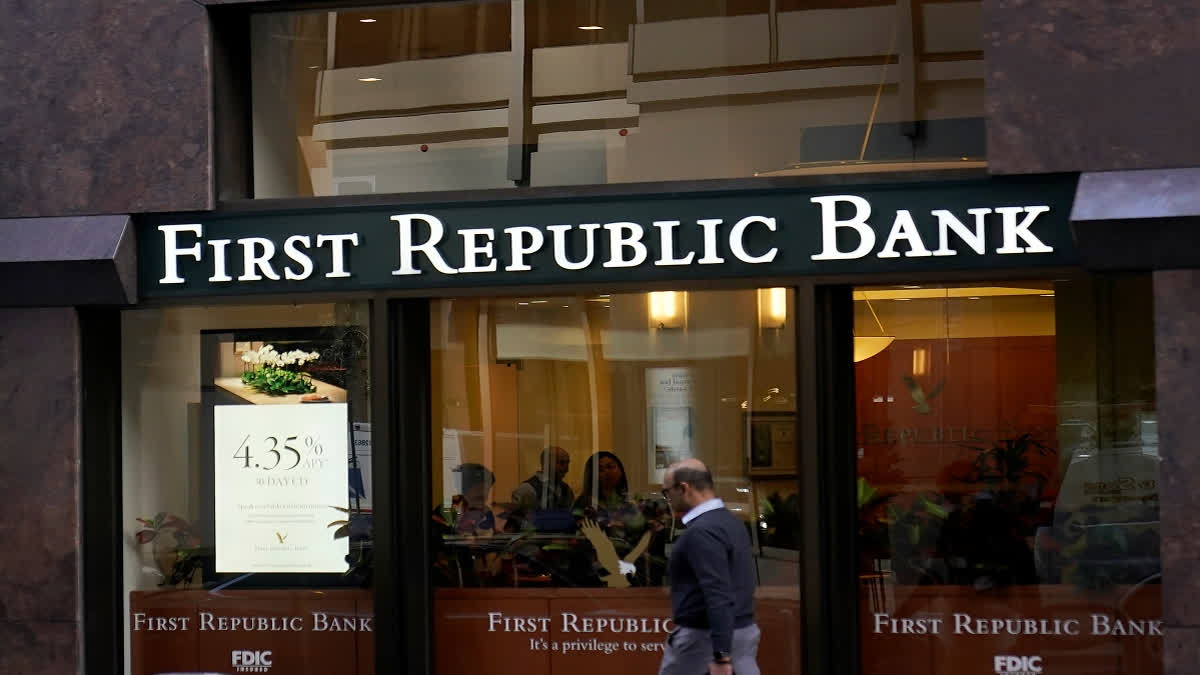New York: The Federal Deposit Insurance Corp. says JPMorgan Chase Bank will take over all deposits and most of the assets of troubled First Republic Bank. The FDIC said early Monday that California regulators had closed First Republic and appointed it as receiver. JPMorgan Chase will assume "all of the deposits and substantially all of the assets of First Republic Bank," it said in a statement.
First Republic Bank's 84 branches in eight states will reopen Monday as branches of JPMorgan Chase Bank. Regulators had been working to find a way forward before U.S. stock markets opened Monday. San Francisco-based First Republic has struggled since the collapses of Silicon Valley Bank and Signature Bank in early March. They added to worries that the bank may not survive as an independent entity for much longer.
Regulators searched for a solution to First Republic Bank's woes over the weekend, hoping to find a way forward before U.S. stock markets opened Monday. San Francisco-based First Republic has struggled since the collapse of Silicon Valley Bank and Signature Bank in early March, as investors and depositors grew increasingly worried the bank may not survive as an independent entity.
The bank's stock closed at $3.51 on Friday, a fraction of the roughly $170 a share it traded for a year ago. It fell further in afterhours trading. World markets have periodically been shaken by worries over turmoil in the banking industry since Silicon Valley Bank's collapse. On Monday markets in many parts of the world were closed for May 1 holidays. The two markets in Asia that were open, in Tokyo and Sydney, rose on Monday while U.S. futures were little changed, with the contract for the S&P 500 up nearly 0.1%.
First Republic has been seen as the bank most likely to collapse next due to its high amount of uninsured deposits and exposure to low interest rate loans. Gary Cohn, a former Goldman Sachs president who served as President Donald Trump's top economic adviser, told CBS News' "Face the Nation" on Sunday that the Federal Deposit Insurance Corporation "would prefer to sell the bank in its entirety than in pieces."
"What will most likely happen is the FDIC will seize control and then simultaneously resell the asset to the successful bidder," Cohn said. Cohn said he believed it will be a "much faster process" than what happened with Silicon Valley Bank. First Republic reported total assets of $233 billion as of March 31. At the end of last year, the Federal Reserve ranked First Republic 14th in size among U.S. commercial banks.
Before Silicon Valley Bank failed, First Republic had a banking franchise that was the envy of most of the industry. Its clients — mostly the rich and powerful — rarely defaulted on their loans. The 72-branch bank has made much of its money making low-cost loans to the rich, which reportedly included Meta Platforms CEO Mark Zuckerberg.
